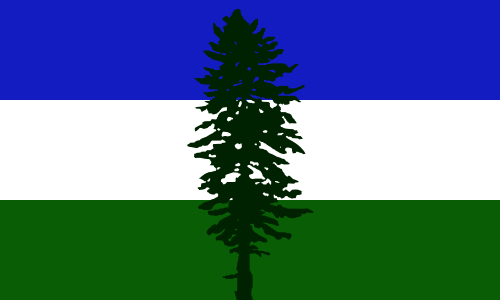Introduction
Paragraph
I. Poems from My Fiction
The majority of these are diegetic and presented as having been written or at least recited by the characters in the stories, however the narratives of some stories, like The Descent of the Drayad, feature short, non-diegetic poems at the beginning of each chapter.
I.a. Poems from The Descent of the Drayad
Each chapter began with an eight-line non-diegetic poem, usually in a standard alternating-line rhyme-scheme. The Descent also contained a number of diegetic verse in the form of songs, prayers, or riddles.
I.a-1.) “Drayad’s Dark Descent”
From The Descent of the Drayad, Imegesis, Chapter I: “Serenity’s Sorrow”
“Within the eldest sun-sprent shades
of the far-off Emerald Forest deep,
amid those hallow’d, ancient glades
a band of Woodnymphs keep.
When eternal youth and beauty fail
to bind a heart immortal rent,
thus begins the hapless tale:
A Drayad’s dark descent.”
I.a-2.) “Wyrd”
From The Descent of the Drayad, Imegesis, Chapter II: “Nepenthe”
“One sennight did the woodland age
since Serenity’s sorrow incited;
since Faith, the Drayads’ trusted sage,
her sister to Esbat invited.
And Serenity waited night after night,
as the full Moon’s eve had neared,
and gathered her hopes upon the rite
as she readied to meet her wyrd.”
I.a-3.) “Invocation of the Triunity”
From The Descent of the Drayad, Imegesis, Chapter II: “Nepenthe”
“Diana, O Diana, Blessed Mother of us all:
Thou That ridest at Thine highth, this quarter of the Moon,
and art lovely hied, this time each month, Lalal,
That dost bright the sky each night; to Whom I cant this rune:
Unto me this sacred eve do I Thee humbly call,
to gyve Thy power to this rite, and lend to it Thy boon.
“Helios, O Helios, Great Father of us all:
Thou That bearest to us light, from Thy throne belough,
and returnest as the Ram each spring; eft slumb’ring sith the Fall;
Thou Who art of endless might, and love to great to know;
Who rebell’d against the evil of the diresome Mortifer’s thrall:
Thy splendor to me grant this night, and with Thy power, endow.
“Arady, O Arady, Holy Teacher of us all:
Daughter of the Day and Night, inspire this, my spell
O Holy Pilgrimess, Whose love doth us befall;
That Thou might send Thy vim alight: this I Thee compel
and of Thee pray, an it doth not too greatly gall.
And humblely I Thee invite, to this new rite indwell.
Alternate version:
“Diana! O Evenstar! Mother of many and each Fay house!
Thou Who dost unto us bear the last waning torch of day,
to herald in thy Sacred Night, as thy flame doth douse!
Thou Who art the Mother Moon, lighting dark as thou may,
to alight upon us sallow boon; for wicked be Thy way.
“Lucifer! O Morrowstar! Father of men and their kings!
Thou Who dost with Thy glory bear forth the light of day,
as Thou Who art above all enthroned, coiled in Thy rings!
Thou Who art the Father Sun, burning the night away,
mate of Venus: our Mother Moon, King forever of the day!
“Arady! O Pilgrimess! Daughter of the Sun and Moon,
Egress, Phoenix, beacon of Night and shade of the Day
Thou Who doth grant unto us every Earthen boon!
Thou Who becometh the Spirit of Earth, Goddess of the Lay
as Thy sacred pilgrimage, journey of all endure!
Mother of Earth, Daughter grown along Thy way,
by we dubbed Gaya and Arda when mature!
“To Ye Gods; Holy Sun, Moon, and Earth, in Triunity,
pray we might avail’st Thou us what this rite ask,
if not wrong or offensive of it doth be
to put ourselves unto this task,
an Thou God Triune should with our goal agree.”
I.a-4.) “Calling of the Eastern Quarter”
From The Descent of the Drayad, Imegesis, Chapter II: “Nepenthe”
“Hail Aldebaran of the Grigori,
Watcher of the Eastern Gate,
Guardian of the Air and Springtide,
and of this Sacred Circle’s fate;
to thy Watchtower I thee call
to keep this Circle’s verge,
from all malice protect it,
and from it, all evil purge!”
I.a-5.) “Calling of the Southern Quarter”
From The Descent of the Drayad, Imegesis, Chapter II: “Nepenthe”
“Hail Regulus of the Grigori,
Watcher of the Southern Gate,
Guardian of the Fire and Summer,
and of this Sacred Circle’s fate;
unto thy Watchtower I thee call
to keep this Circle’s verge,
from all malice protect it,
and from it, all evil purge!”
I.a-6.) “Calling of the Western Quarter”
From The Descent of the Drayad, Imegesis, Chapter II: “Nepenthe”
“Hail Antares of the Grigori,
Watcher of the Western Gate,
Guardian of the Water and Autumn,
and of this Sacred Circle’s fate;
unto thy Watchtower I thee call
to keep this Circle’s verge,
from all malice protect it,
and from it, all evil purge!”
I.a-7.) “Calling of the Northern Quarter”
From The Descent of the Drayad, Imegesis, Chapter II: “Nepenthe”
“Hail Formalhaut of the Grigori,
Watcher of the Northern Gate,
Guardian of Earth and Winter,
and of this Sacred Circle’s fate;
unto thy Watchtower I thee call
to keep this Circle’s verge,
from all malice protect it,
and from it, all evil purge!”
I.a-8.) “Calling of the Inner Quintessence”
From The Descent of the Drayad, Imegesis, Chapter II: “Nepenthe”
“Hail Eosphoros of the Grigori,
Watcher of the Inner Gate,
Guardian of the Ether and Ever,
and of this Sacred Circle’s fate;
unto thy Watchtower I thee call
to keep this Circle’s verge,
from all malice protect it,
and from it, all evil purge!”
I.a-9.) “Confirmation of the Circle”
From The Descent of the Drayad, Imegesis, Chapter II: “Nepenthe”
“In the name of the Light-bearer ,
Apollo , of the All-seeing Eye;
in the name of the Great Mother,
Diana , of the midnight sky;
and in the name of Their proud Daughter,
Arady , Traveler On High ;
that properly cast be this Circle,
do now proclaim I!”
I.a-10.) “Faith’s New Rite”
From The Descent of the Drayad, Imegesis, Chapter III: “Embrocation”
“Amidst the woodland’s nighted glades
of radiantly gild-spangled shades,
were three fair, tith, yet sonsie maids
to test this, Faith’s new rite.
An’ this new rite, the Shamaness spell’d
for sake of her sister, so inly fell’d,
that Serenity’s sorrow might be quell’d
before the end of night.”
I.a-11.) “Charity’s Herbal Invocation”
From The Descent of the Drayad, Imegesis (in Faenarin)
“A vallilae tu llae aethin,
Sythad’ya lles ilia’n ngythin!
A vallilae tu llae ramin,
Sythad’ya lles ilia’n ngythin!
A vallilae tu llae quethin,
Sythad’ya lles ilia’n ngythin!
A vallilae tu llae theardin,
Sythad’ya lles ilia’n ngythin!
A vallilae tu llae alluvin,
Sythad’ya lles ilia’n ngythin!”
I.a-12.) “Charity’s Elemental Prayer”
From The Descent of the Drayad, Imegesis (in Faenarin)
“A vallilae tu aethin, tu ramin, tu quethin, tu theardin, ea tu alluvin -- ila ngythad tu ninae A vallinae, athad’ya nilae athil enthen, athad’ya lai inia, ea sythad’ya ilia’n ngythin. Llaenad’ya lles llornil A vallinae, lles llornil tu Serenity’n, ea lai thina llaenad’ya nilae’n mbaenin, lle mbaenil thila mbe lloanden llornad’ty, ynd llet an’ty nilae’n vorin. Ila ngythad tu ninae.”
I.a-13.) “Larvae”
From The Descent of the Drayad, Diegesis, Chapter I: “The Somberwood”
“Born it was when the wolds did wither,
blind specter of death through the trees doth slither,
winding ever about in hunger’d dither,
riving and gnawing all things yet whither,
knoweth not the specter that it should slither,
wilting the forest from here thither;
of swallow’d souls doth it coil and slither;
hear ye this, the forest’s swither:
the Shadow riseth and cometh hither!
“This wither’d wood doth not belie;
eater of souls that stirreth nearby,
from the darkness of its shadow-sty,
wherein waiting doth it lie:
Aroint! Aroint! It hunteth aye!
Heed ye now this, this woodland’s cry --
go ye now or soon ye’ll die!
Flee ye from the specter-wry!
Make haste! Make haste!
The blind specter of death draweth nigh!
“Harken ye! This warning hear:
soon ye’ll know the truest of fear!
The specter of death shall soon appear!
Into your souls shall it darkly peer,
and for ye shall it forthwith sheer!
Run away ye now!
The specter-wry draweth near!
Toward ye doth it swiftly veer!
Nary a moment this place adhere --
Too late! Too late!
The blind specter of death is come here!”
I.a-14.) “Cape the Raptors”
From The Descent of the Drayad, Diegesis, Chapter II: “Raptrices of the Thorn”
“Through these woodlands cape the raptors
for captives they assay to reap,
whom so longly list to rape, these captors,
as raptives to their bondage-keep,
And ever they rapace here with this capacity:
that whosoever be raught here is captured;
that whosoever capace here shall meet rapacity,
and whosoever be caught here is raptured.”
I.a-15.) “The Drollwife’s 1st Riddle”
From The Descent of the Drayad, Diegesis, “The Sheorcs”
“A month unto mortals is but a day unto me.
In the night do I cast light so that creatures may see.
One week I am virgin, next mother, then crone.
And one sennight I’m gone and leave ye alone.
Who am I?”
I.a-16.) “The Trullmaid’s 1st Riddle”
From The Descent of the Drayad, Diegesis, “The Sheorcs”
“It is I that teacheth wisdom unto the elder beings,
and I also that am bane unto lesser mortal things.
‘Tis by my power all things should unfold;
‘tis my scythe that reapeth those things when old.
Who am I?”
I.a-17.) “The Drollwife’s 2nd Riddle”
From The Descent of the Drayad, Diegesis, “The Sheorcs”
“Such a being am I that spanneth all time,
that even in summer am I chilled by rime.
My roots grow deeper than yet the tallest tree,
and my face sitteth so high the whole world can see.
Who am I?”
I.a-18.) “The Trullmaid’s 2nd Riddle”
From The Descent of the Drayad, Diegesis, “The Sheorcs”
“My legions are many, infesting the earth.
I destroy all I see, and I do it in mirth.
I cut down the tree, and flatten the hill,
and boast all about the Orcs that I kill.
Who am I?”
I.a-19.) “The Drollwife’s 3rd Riddle”
From The Descent of the Drayad, Diegesis, “The Sheorcs”
“Westward-forth and eastward-fro,
I dry the rain and melt the snow.
I cross the heavens on gilded wing,
and unto the mountains I every day sing.
Who am I?”
I.a-20.) “The Trullmaid’s 3rd Riddle”
From The Descent of the Drayad, Diegesis, “The Sheorcs”
“Spy me near the trickling sound,
for in that place shall I be found.
I am babbling sounds and waters fresh --
‘twas these two Sheorcs, who tore my flesh.
Who am I?”
I.a-21.) “Larissa’s Last”
From The Descent of the Drayad, Exegesis, “Terminus”
“She sings Her song eternal,
He inspires the breaths of the wight,
He reaps the fields most fruitful,
She indwells the dark of the night.
She plucks bald the trees in the autumn,
and He returns them their leaves in the spring,
She expires the chilling of winter,
the Matrix of each living thing.
And Mator be Him in the summer,
and predator stalking His prey,
the substance beneath all of Nature,
the Choosers of each our last day.
By Mortality’s gift do They curse us,
and by Mortality lovingly bless,
with each waking breath They ensoul us,
and with last heart’s beat They caress.
How simple this truth that They teach us,
that by Mortality’s kiss I have learned:
The fires that die out the quickest,
are those fires that most brightly burned.”
I.b. Poems from The Book of Temptations
I.a-5.) “The Paladins’ Prayer”
From The Book of Temptations, Chapter III: “Hell’s Tempest”
“If only to die, if only to die and be away from this place; this place, this horror, and to die herein and go not one step more -- to die in the terror already upon us and never see our fate awaiting. O Gods above grant us this if no other wish and forever shall we be thankful: take us now in mercy or ill, for it matters no more.”
II. Other Poems
Poems not related to my fiction.
II.a. Romantic Poems
Poems I wrote for women I admired on a romantic level, or at least who I found intriguing enough to deem worthy of admiration in that regard.
II.a-1.) “Vennessa”
“Whenas first I glimpsed your face
I felt my very breath was taken
Tremblingly did my pulse race
In that instant, my soul was shaken
“And as I gazed upon your vise
My kneeving heart quickened pace
More terrible beauty, none could devise
Divine as Venus was your grace
“Your countenance strong, and yet so tender
My every thought did you incise
Such that to you my heart did render
To ponder what within you lies
“With every look my heart you capture
With the inspiration you engender
Every expression bringing rapture
Inly thus do I surrender
“Your smile bright as fair sunrise
Felling me with warmth and splendor
Like moonlit sapphire shine your eyes
Your face could spell a man's demise”
I.a-2.) “Her Eyes”
“Each time I look into her eyes
I find rapture, thousandfold
They lift my heart unto the skies
To heavens vast, fierce, and cold
“Within her eyes, a goddess dwells
Her every glance: subtle, bold
A power that both saves, and fells
Upon her beauty, my heart is shoaled
“And every time I see her face
The fire in me’s re-ensouled
By eyes that start my heart to race;
The divinity therein extolled
“A gaze so full of warmth and love
Azure eyes veined with gold
Outshining the very stars above
Her eyes are miracles to behold
“Neither spoken of by ancient sages
Nor sung of by the bards of old --
Never before in all the ages
Was ever a greater beauty told”
I.a-3.) “Jackie”
“Within you such a fire rages
Through eyes that glimmer ever-bright
Shining unto distant ages
Like that first Promethean light
Stolen from gods, sung of by sages
What mortal could endure such sight?
A fairness that both frees and cages
A dawning sun in darkest night”
II.b. Miscellaneous Poems
Poems written on various subjects.
II.b-1.) “O How Basal Their Basilect Is!” (2006)
Full title: “On the Hypocrisy of Using a Butchered Version of the Standard American English Dialect in the Common European-American Vernacular Basilect as an Absolute Standard against Which All American Sub-dialects, Idiolects, or Otherwise Non-Standard, Non-Specialist Speech Registers are Measured: O How Basal Their Basilect Is!” (2006)
“The progressive aspect knows no telic;
and the frequentative seems a relic.
With obscure aspects such as these,
a grammarian simply cannot please
nor teach this horridly mindless mass
who know of the interrogative class
not even whither the subject’s place
should be here, or in the object’s space.
They care nought for derivation
nor even proper punctuation;
yet we try to teach them anyway
when to lie, where to lay.
They’ve proven that they cannot “get”
this confusing thing called predicate,
and honestly think that they can fool
us if they rightly use the majuscule
graphemes, into maybe thinking
we need not teach them that a linking
verb is something that they need use,
or that maybe they should not abuse
a plural-only, third-person pronoun
to mean “a person in either pants or gown”,
when they don’t even know wherefore
the interrogative of therefore is for!
What, O what, are we to do?
You’d think each would drool on his own shoe
whilst trying to tie that double knot,
for the combined I.Q. of this whole lot
must be lower still than mayonnaise.
For it never ceases to amaze
me how they can even speak at all
when they can’t even feign recall
how to use a verb’s middle voice,
that the present-tense of hoist is hoise,
or simple things, like thou and thee
are not “old-timey” forms of you and me!
Yet still I sit and ponder, sorely,
how they can speak and spell so poorly
a speech they so proudly call their own
as to use two words to spell alone,
then wipe their noses on their hands
and proclaim that all should leave these lands
who do not speak the English tongue --
what a pile of steaming dung!
What do they think gives them the right,
with a knowledge of English, so laughably slight,
to actually say we need expel
those who don’t speak English well?”











